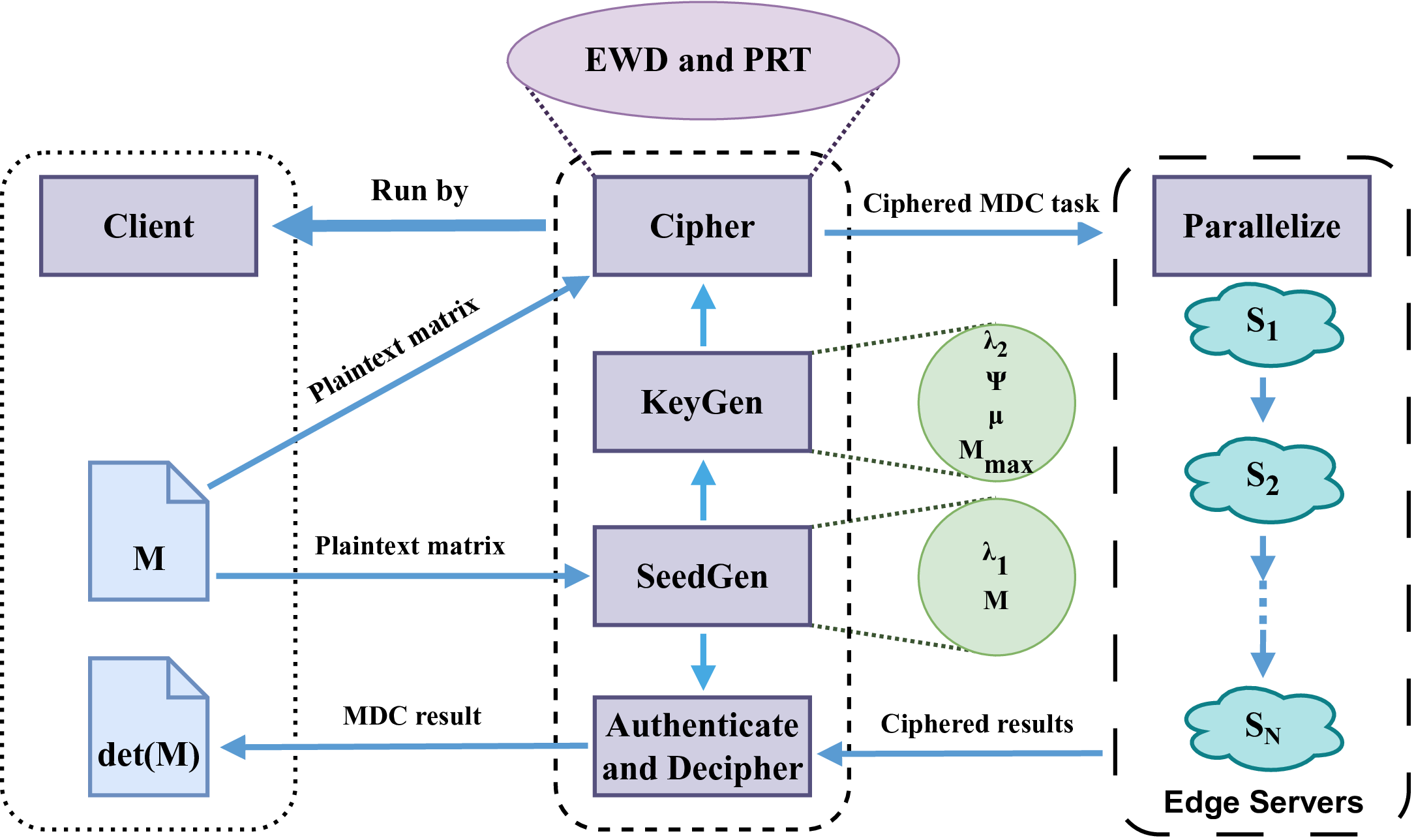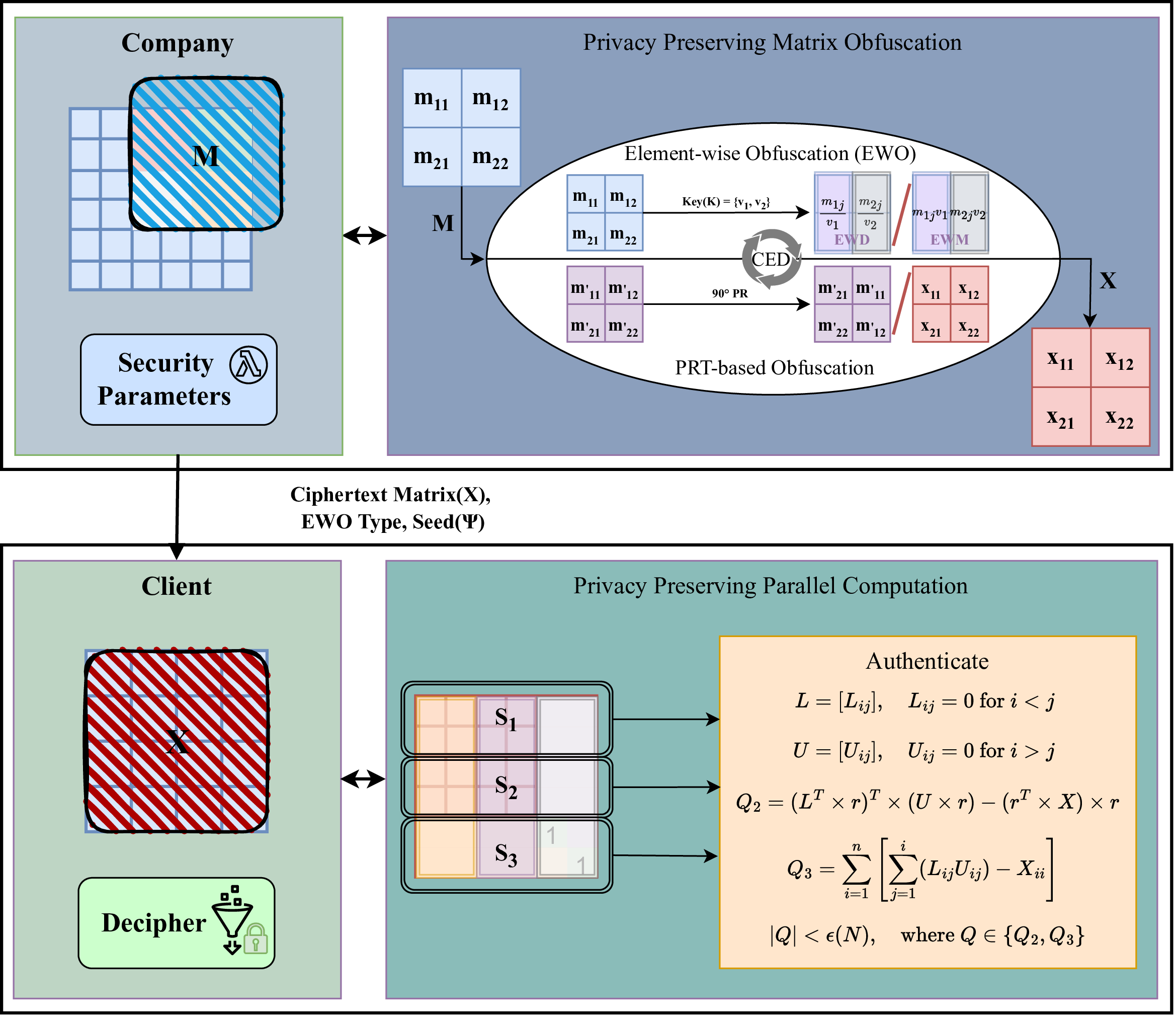


Privacy-Preserving Parallel Large-Scale Matrix Determinant Computation for Multi-Edge Networks
Matrix determinant computation (MDC) is crucial in cryptography, control systems, and machine learning but remains computationally intensive, especially in resource-constrained environments like IoT. Existing privacy-preserving MDC protocols rely on two edge servers, limiting scalability and efficiency in large-scale applications. We propose a novel framework for Privacy-Preserving Parallel MDC utilizing N > 2 distributed edge servers. The framework introduces Composite Element Distortion (CED), a lightweight encryption method that combines Element-wise Obfuscation (EWO) and Panth Rotation Theorem (PRT)-based Obfuscation. Additionally, the Flip Invariance Theorem (FIT) and Zero Sub-Matrix Theorem (ZSM) are introduced to enhance singularity detection without full determinant computation. The framework includes lightweight authentication, decryption, and parallel LU decomposition to reduce computational complexity. Simulation results demonstrate that the proposed solution achieves secure, scalable, and efficient MDC, making it suitable for real-time applications in IoT and other fields.
Request Access